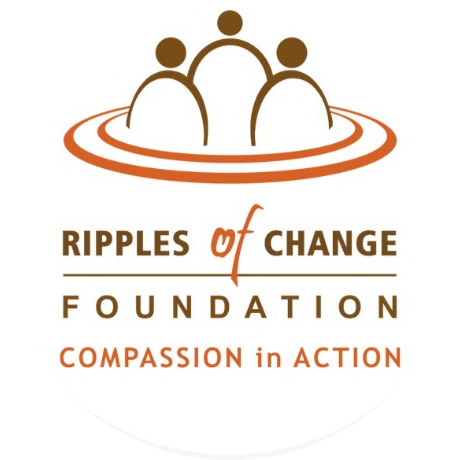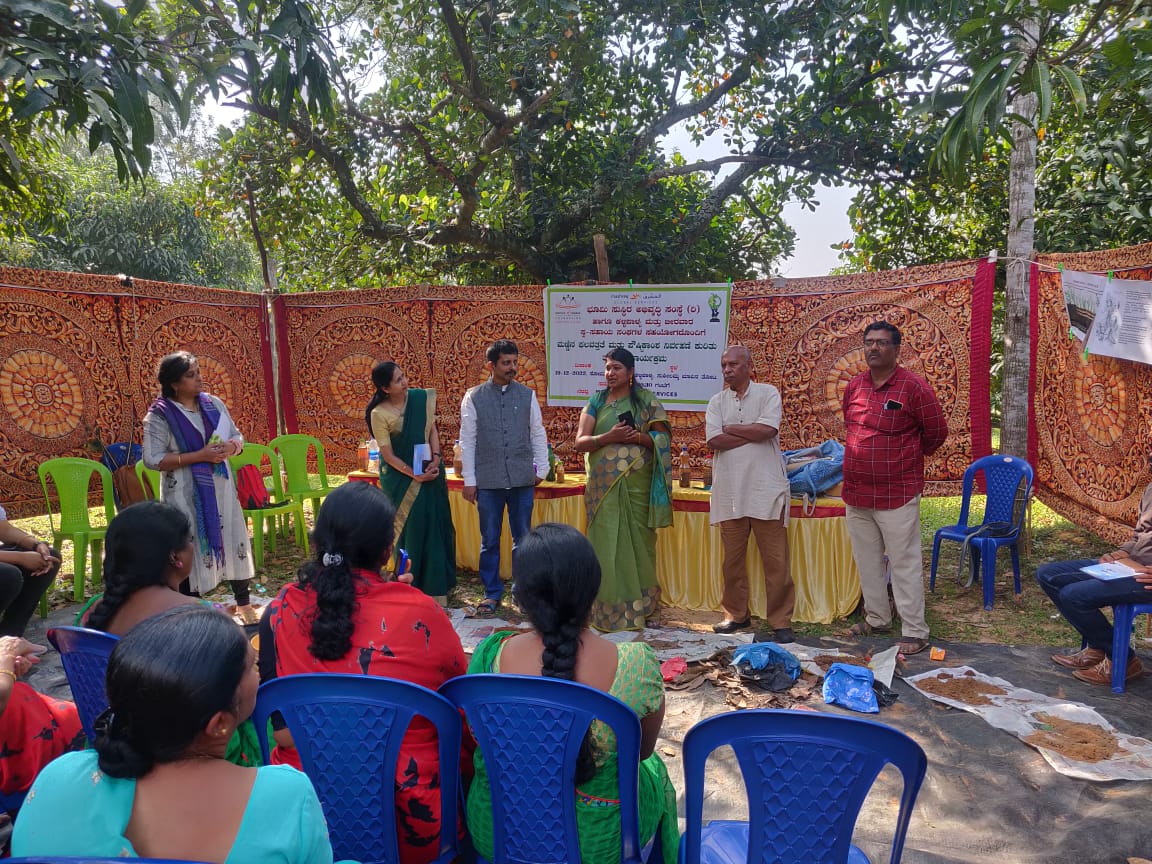In many parts of the world, women play a pivotal role in agriculture, contributing significantly to food production and the well-being of their communities. However, despite their crucial involvement, women often face challenges in accessing resources and knowledge that can enhance their agricultural practices. One area that holds immense potential for improving agricultural productivity is training women in soil fertility and nutrition management. This article explores the importance of empowering women through targeted training programs in these critical aspects of agriculture.
The training program held on Monday, December 19, 2022, at Susheelamma Mango Farm (Kallipalya) was marked by the presence of distinguished guests who added depth to the informative session. Notable attendees included Mr. Venkatesh Murthy, CSR Head and Vice President of Data Privacy and Protection at MASHREQ Global Services, and Mrs. Kavitha D.L., Deputy Director (Projects & Advocacy) from the Ripples of Change Foundation. The event also saw the participation of local influencers, with Smt. Pankajamma, a Panchayat Member and Local Self-Help Group (SHG) Member, and Smt. Shusheela N Kamat, the dedicated President of the BHOOMI Sustainable Development Society. The program witnessed a diverse turnout, with 2 male participants, 21 female attendees, and active involvement from MASHREQ volunteers (12), Ripples of Change Foundation (1), and BHOOMI representatives (4). The Susheelamma Mango Farm provided an engaging venue for collaborative discussions, underlining the significance of community involvement in training initiatives.
The commencement of the training program was marked by Mr. Sreenivasu, the Resource Person, leading the participants in prayer. Following this, Mrs. Geethrani T.K. of the BHOOMI Team extended a warm welcome to the esteemed guests, volunteers, and Self-Help Group (SHG) members. Mr. Sreenivasu from Soil Trust took the reins of the program, shedding light on the current adverse effects on health, economic status, and nutrition resulting from the indiscriminate use of chemical fertilizers in today’s agriculture. Emphasizing that soil conservation is a collective responsibility, he utilized the occasion of International Soil Day Month to engage with farmers, providing demonstrations on crucial aspects. Farmers gained insights into testing their soil, understanding the percentages of sand, silt, clay, and organic matter, as well as determining the soil’s water-holding capacity. Mr. Sreenivasu underscored various methods to assess soil quality, including visual inspection, smell, the ability to make roti or ball, and the percentage of organic matter.
Vermi-Compost Demonstration:
Mr. Ravi, the Project Director of BHOOMI, enlightened the audience on the significance of earthworms in soil, portraying them as allies to farmers by aiding in soil aeration. Due to the extensive use of chemical fertilizers, locating earthworms in fields has become challenging. Following the informative session, a demonstration on earthworms was conducted, with Susheelamma’s family, the host farmer, releasing earthworms into the designated pits along with the guests.
Key points covered during the demonstration included the careful selection of pit locations at the top, the exclusion of green leaves, the preference of earthworms for dry leaves and cow dung slurry, the maintenance of moisture levels in the pits, and the avoidance of plastic, stone, and glass in the pits. It was emphasized that vermi-compost could be utilized for any crop. The demonstration concluded with the sharing of a successful case study featuring Dummalli Shivamma, a progressive farmer.
The program concluded with a book release titled “MANNINA ARIVU,” which was unveiled by the guests, SHG members, and women farmers. Additionally, an exhibition of value-added food products by the BHOOMI team showcased items such as groundnut oil, ragi powder, wheat powder, rice powder, besan powder, turmeric powder, fox-tail millet, brown top millet, and little millet. These products, prepared by SHG groups and Farmers Producer Companies, highlighted the commitment to sustainable agricultural practices and the promotion of locally sourced, nutritious food.
The Significance of Soil Fertility and Nutrition Management:
Soil fertility and nutrition management are fundamental elements in sustainable agriculture. The health of the soil directly impacts crop yield, nutritional quality, and the overall resilience of farming systems. Women, who are frequently involved in small-scale and subsistence farming, stand to benefit significantly from acquiring knowledge and skills in optimizing soil fertility and managing crop nutrition.
Training women in soil fertility and nutrition management is not just about improving agricultural practices; it is a step towards empowering entire communities. By investing in the knowledge and skills of women in agriculture, we create a ripple effect that positively impacts food security, economic stability, and environmental sustainability. As we move forward, it is imperative to prioritize gender-inclusive agricultural development strategies, ensuring that women are key stakeholders in building resilient and sustainable food systems.


